Kinkaku-ji 金閣寺 Temple is one the most famous - and most visited - temples of Kyōto 京都. Located in the hills to the north-west of the ancient capital, its name literally means “golden-pavilion-temple” and is instantly recognisable thanks to the gold leaf that covers the exterior walls of its upper two stories. However, Kinkaku-ji 金閣寺 is not all it seems: despite what you might be tempted to believe in the light of its surroundings, the building that so many million tourists gasp at in awe is not actually very old, is not technically a temple and was never even originally any where near as golden as it is today!
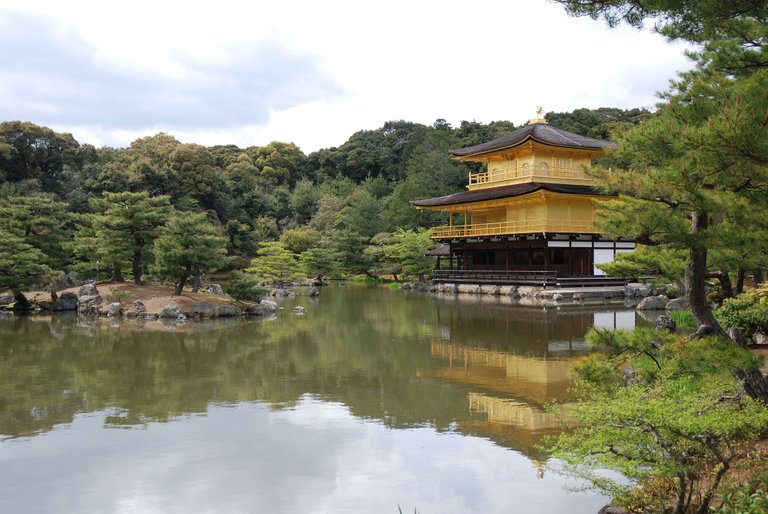
It is not surprising that these facts are not more commonly known: after all, the building and its surroundings are so beautiful that it is tempting to say: “who really cares?!” However, in the interest of historical - and architectural - accuracy, here are some facts.
Photo by Adolfo Farsari (1841 - 1898), uploaded to Wikimedia and available here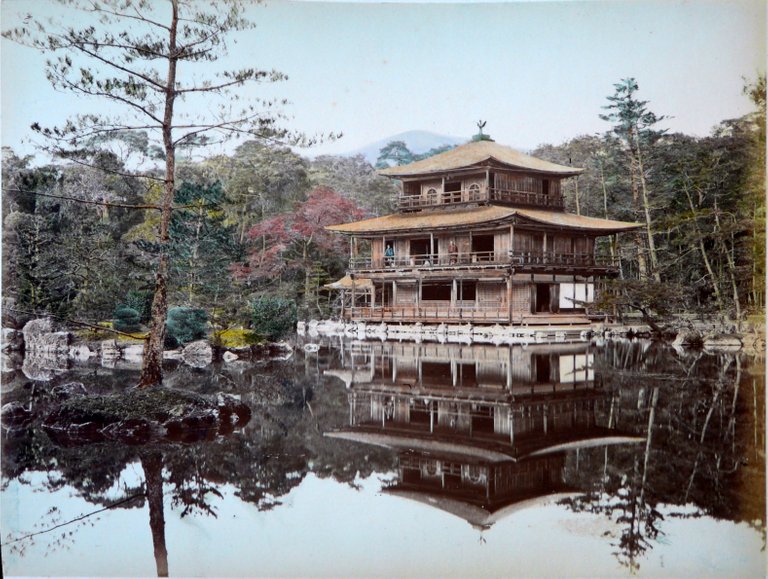
- 1 Originally completed at the very end of the 14th century and purchased along with the surrounding buildings and land by the shōgun at the time, Ashikaga Yoshimitsu, the pavilion was burnt to the ground in 1950 by a mentally unstable novice monk. The building that stands today is a reconstruction, erected in the 1955.
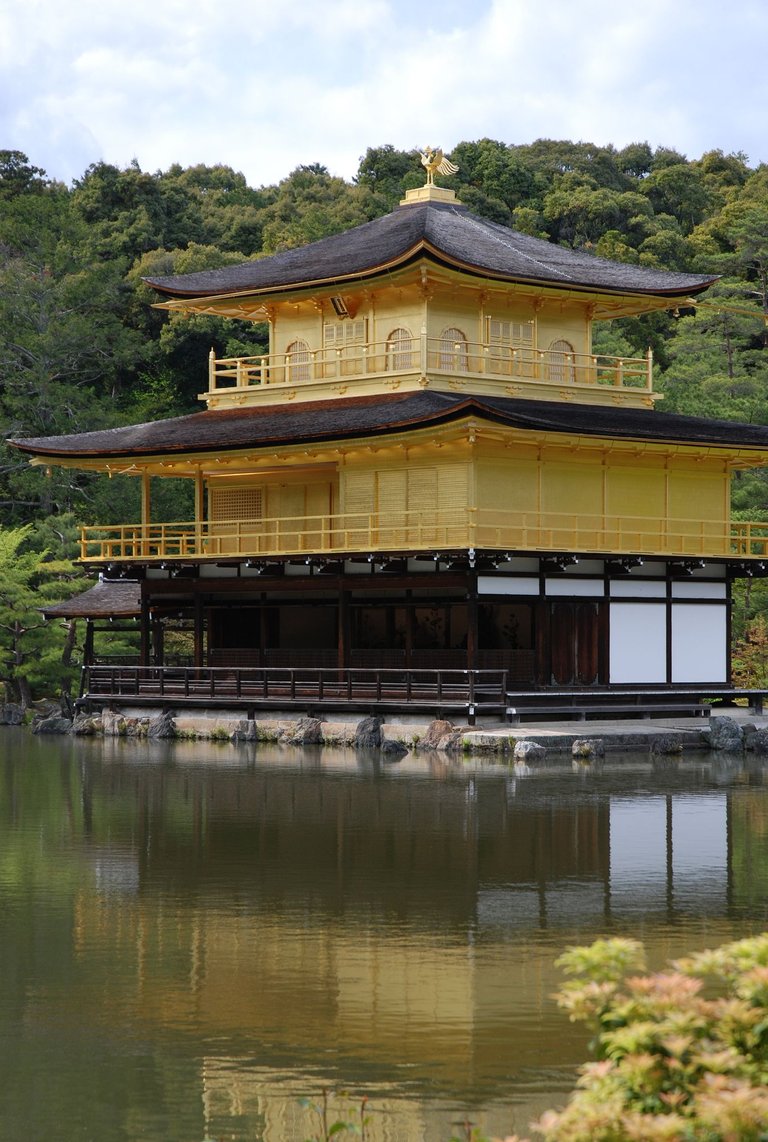
- 2 Whilst the complex was not originally intended as a temple, it was turned into a temple complex by the son of Ashikaga Yoshimitsu. That being said, the pavilion is not itself a temple per se: the actual temple - in whose grounds the pavilion stands - is called Rokuon-ji 鹿苑寺 (literally “deer-garden-temple”); the pavilion is a form of Buddhist reliquary, built to house the Buddha’s ashes.
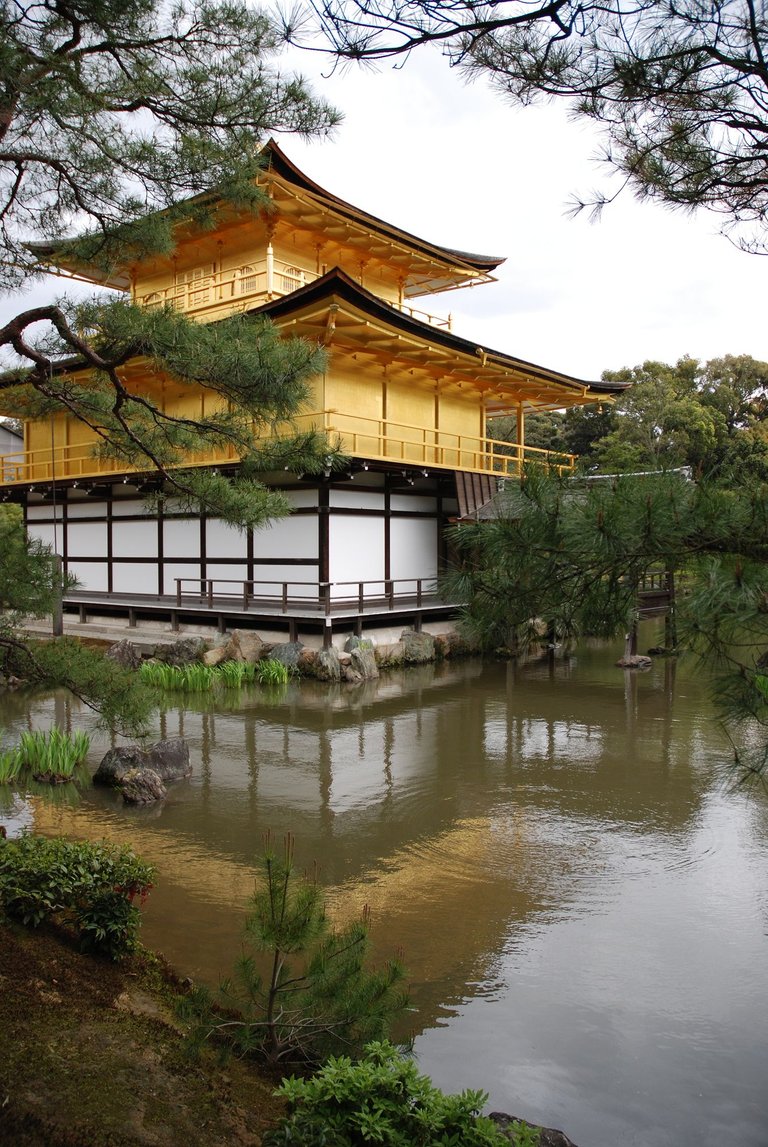
- 3 According to records made at the beginning of the 20th century (years 37 to 39 of the Meiji era) during some intensive restoration work, only walls of the 3rd floor (2nd floor to European readers) were covered in gold leaf. The second floor (1st floor to European readers) had its exterior walls covered in gold leaf only as a result of the 1955 rebuilding (along with other architectural modifications, such as the elimination of windows on the 2nd floor (1st floor to European readers). This gold leaf was further added to in the 1980s, increasing its thickness by five times and thereby enhancing the overall effect.
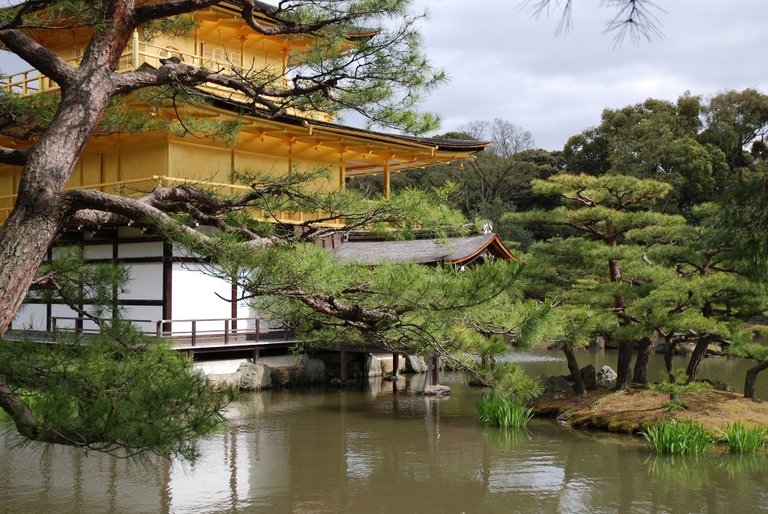
Sorry if this article's a little nerdy but, hey, if you thought so then at least I hope you enjoyed the photos ;)
When he's not obsessing over heritage varieties of vegetables & herbs, chasing off wild deer or otherwise running around the fields of his mountain farm, he's trying to beat the system, taking photos or trying to better understand cryptocurrencies.
You can find his Steemit introduction here
You can find out more about his farm here: @potager-cerfs
The holy temple located on an attractive nature. The nature makes the temple more beautiful.T travelled Japan few years ago. I was surprised how beautiful the Japan is! I am waiting to see this temple. You have the right choice.
World of Photography
>Visit the website<
You have earned 6.50 XP for sharing your photo!
Daily photos: 1/2
Daily comments: 0/5
Multiplier: 1.30
Block time: 2018-05-10T02:05:27
Total XP: 11.55/100.00
Total Photos: 2
Total comments: 0
Total contest wins: 0
Follow:
Join the Discord channel: click!
Play and win SBD:
Daily Steem Statistics:
Learn how to program Steem-Python applications:
Developed and sponsored by: @photocontests@fairlotto@dailysteemreport@steempytutorials @juliank
Congratulations @nicksikorski! You have completed the following achievement on the Steem blockchain and have been rewarded with new badge(s) :
Click on the badge to view your Board of Honor.
If you no longer want to receive notifications, reply to this comment with the word
STOPCongratulations @nicksikorski! You received a personal award!
You can view your badges on your Steem Board and compare to others on the Steem Ranking
Vote for @Steemitboard as a witness to get one more award and increased upvotes!